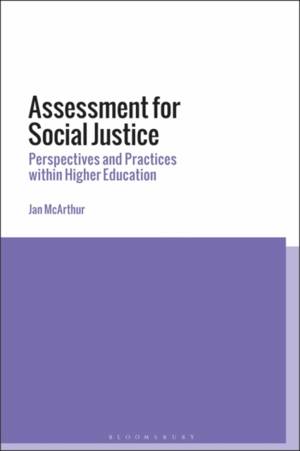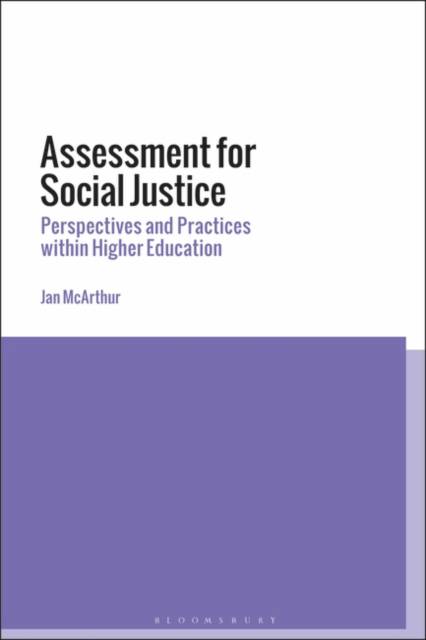
- Retrait gratuit dans votre magasin Club
- 7.000.000 titres dans notre catalogue
- Payer en toute sécurité
- Toujours un magasin près de chez vous
- Retrait gratuit dans votre magasin Club
- 7.000.000 titres dans notre catalogue
- Payer en toute sécurité
- Toujours un magasin près de chez vous
Assessment for Social Justice
Perspectives and Practices Within Higher Education
Jan McArthur
Livre broché | Anglais
79,95 €
+ 159 points
Format
Description
Assessment for Learning (AfL) has become an established idea within higher education, based on the evidence that assessment is one of the most powerful drivers of student learning and thus can be harnessed as a means to improve learning. Assessment for Social Justice looks at assessment in higher education through the lens of critical pedagogy and social justice, and offers new insights to both fields of enquiry.
The starting premise, adopted from AfL, is that the way in which we form and practice assessment can and should influence the social justice outcomes of higher education. Looking at a number of different theories of social justice, Jan McArthur explores how alternative theories provide the foundations for different types of assessment practice. The theories explored include the works of John Rawls, Theodor Adorno, Amartya Sen, Martha Nussbaum, Nancy Fraser and Axel Honneth. McArthur then explores different examples of assessment and how these embody, or constrain, alternative theories of social justice. She provides a theoretically rigorous understanding of assessment as a social practice, and as a vehicle both for and against social justice. Assessment for social justice is explored in two complementary ways - the justice of assessment within higher education, and assessments that promote greater social justice - and in doing so this book contributes to ongoing debates about the nature and purposes of higher education.Spécifications
Parties prenantes
- Auteur(s) :
- Editeur:
Contenu
- Nombre de pages :
- 232
- Langue:
- Anglais
Caractéristiques
- EAN:
- 9781350131026
- Date de parution :
- 19-09-19
- Format:
- Livre broché
- Format numérique:
- Trade paperback (VS)
- Dimensions :
- 156 mm x 234 mm
- Poids :
- 322 g







